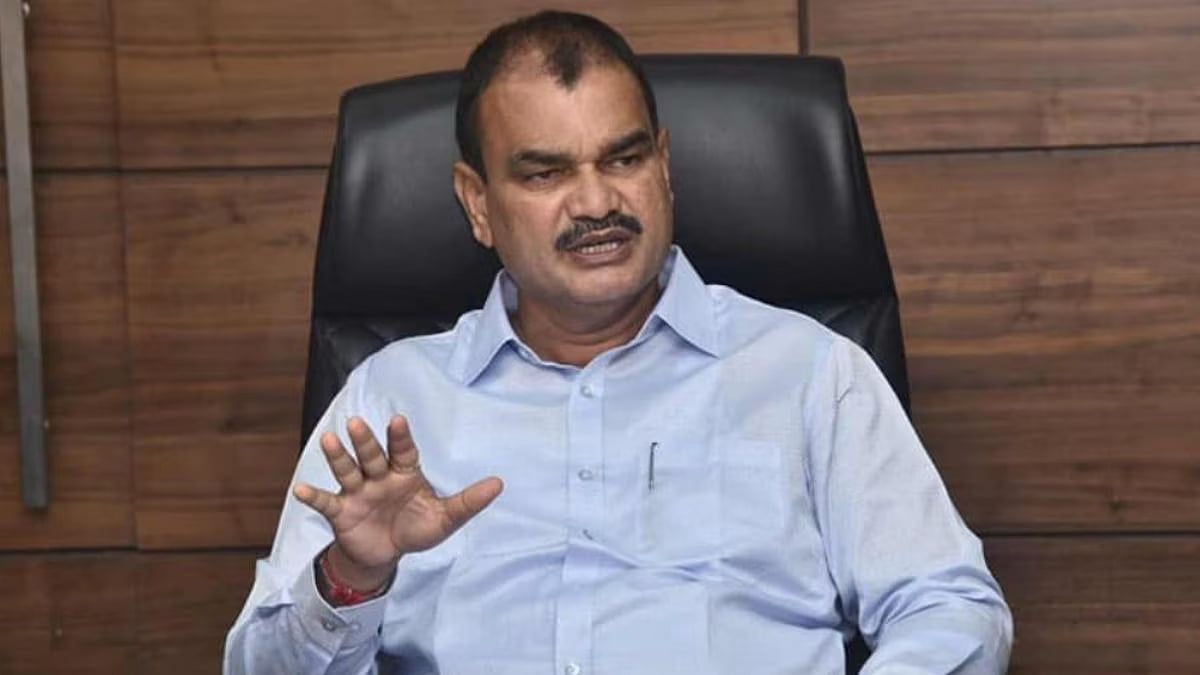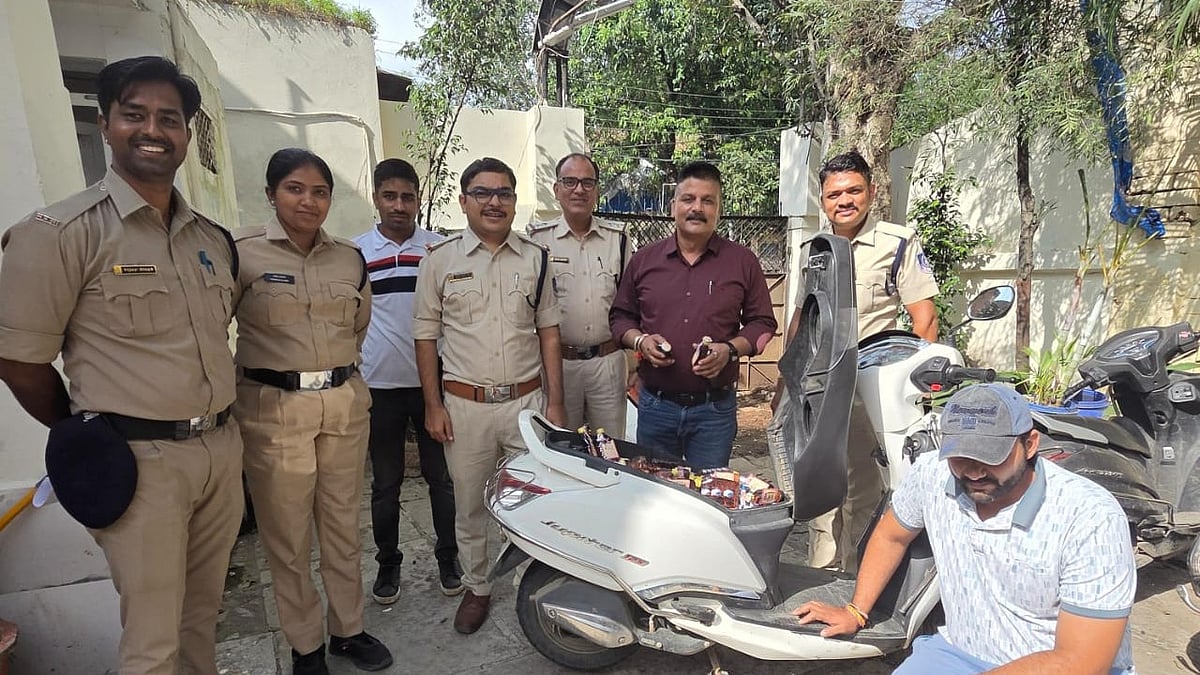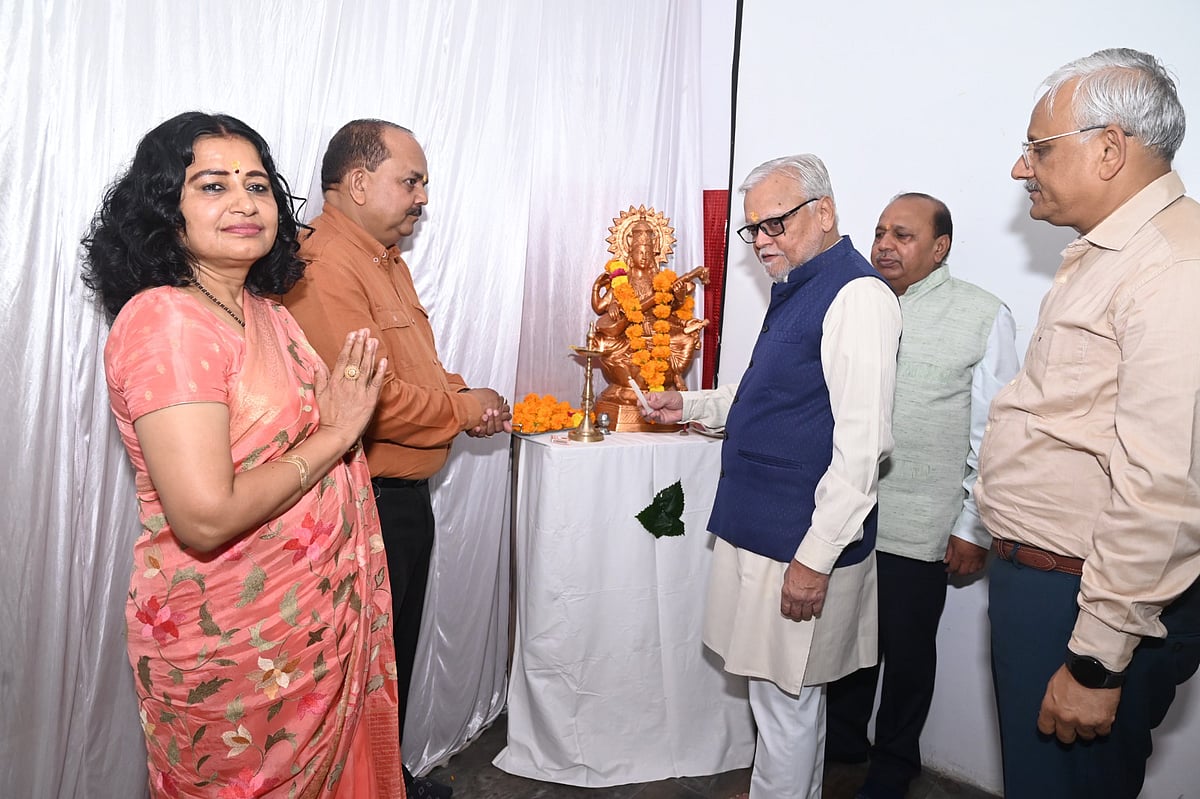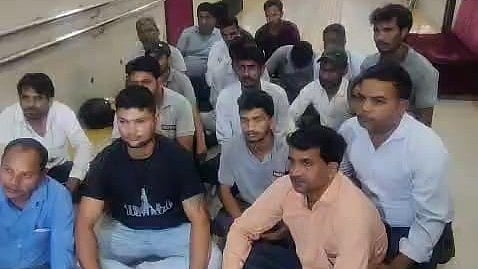Indore (Madhya Pradesh): "Only Indian knowledge tradition can make India a Vishwa Guru again,” said national secretary of Shiksha Sanskriti Utthan Nyas, New Delhi, Dr Atul Kothari, while addressing a national symposium on the relevance of Indian knowledge systems in the context of a developed India.
The event was organised on Tuesday at Prime Minister College of Excellence, Atal Bihari Vajpayee Government Arts and Commerce College.
Dr Kothari emphasised that separating religion from action has led to corruption and social issues. He urged reconnecting with Indian values, stating that true development requires each sector of the country to be rooted in knowledge traditions.
Highlighting India’s past glory, he said, “There was a time when the world came to India to learn art and trade because we were deeply connected to our culture. To reclaim that status, we must revive our heritage.”
He described the National Education Policy 2020 as the first policy truly based on Indian tradition. Unlike Macaulay’s framework, which enslaved minds despite Indian identities, the NEP aims to produce citizens who embody Indian thought, behaviour and intellect. Texts like the Ramayana and Mahabharata, he added, should form the foundation of curricula to instil values of peace and holistic knowledge.
Guest speakers further expanded on this theme. Omprakash Sharma, zonal convenor (Central Region), Shiksha Sanskriti Utthan Nyas, stressed skill development alongside knowledge for self-reliance, while vice-chancellor, Devi Ahilya Vishwavidyalaya, prof Rakesh Singhai, reminded the audience that concepts like the atomic theory were explored by Indian sages centuries before Dalton.
Former MPPSC chairperson, Shobha Tai Paithankar, highlighted how the NEP integrates character, environment, health and technology.
R. C. Dixit, additional director, Higher Education Department, Indore Division, chaired the symposium. Dr Mamta Chandrashekhar, principal of the host college, underlined the importance of passing cultural values to future generations through education.
The concluding session included remarks by Dr Sachin Sharma, district coordinator of NSS; Vinod Birla, social worker; and Dr Ashwini Kumar Dubey, homeopathy expert. Among the academics present were Dr Prakash Garg, Dr Dinesh Purohit, Dr Ashish Pathak and Dr Sandhya Goyal.
The programme was conducted by Dr Sandhya Bhargava and information was shared by media spokes person Dr Vandana Joshi.
The symposium featured 46 research paper presentations, a book exhibition on Indian traditions and insights from scholars, social workers and educationists. The event concluded with a call to reconnect with roots to build a stronger and culturally anchored India.











